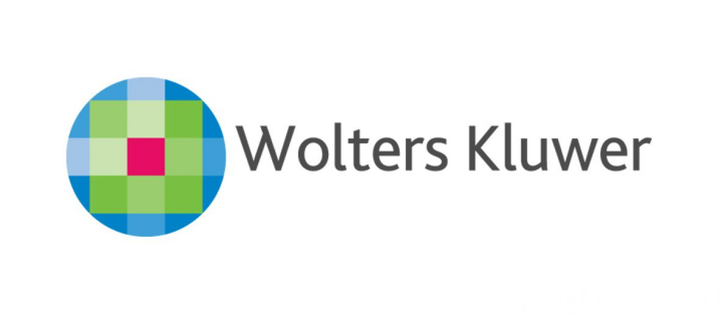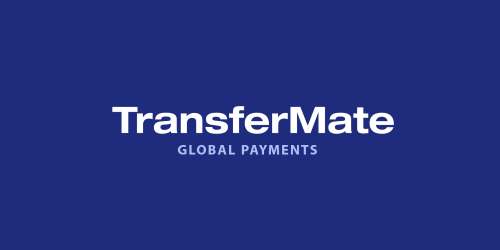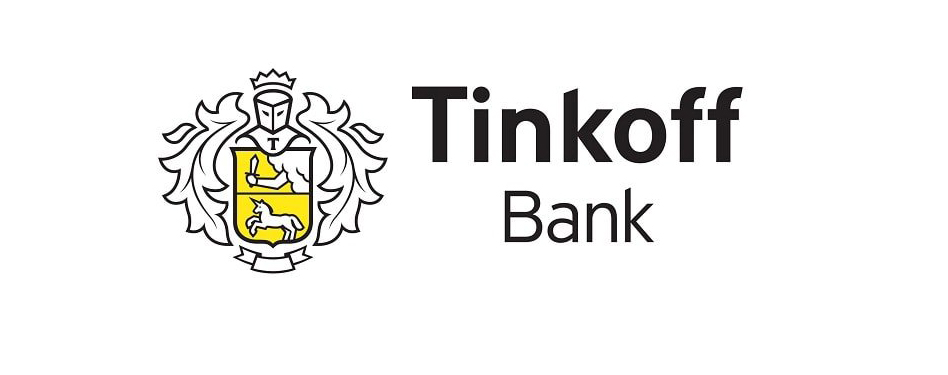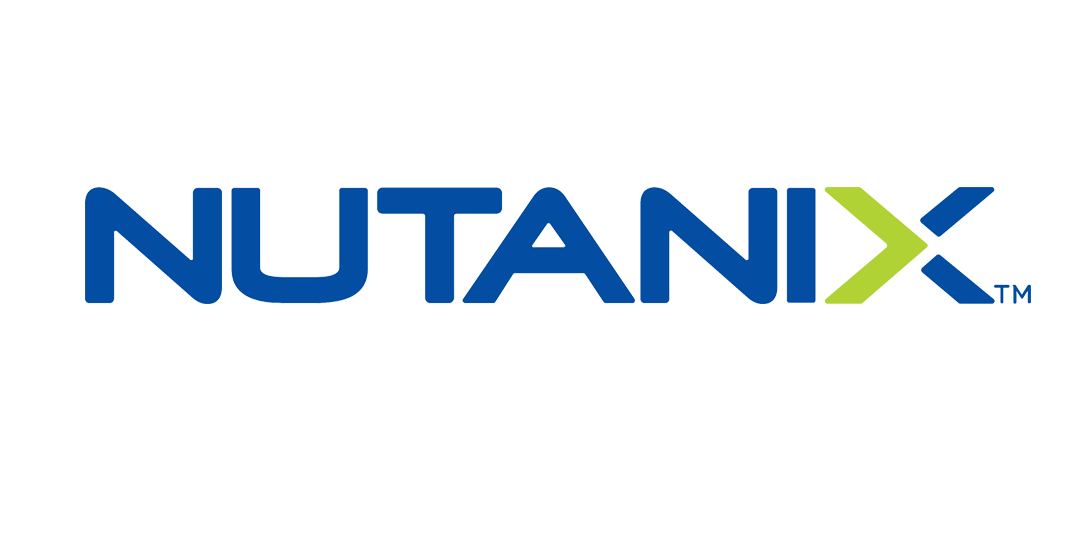Published
- 07:00 am

Linedata (LIN:FP), a global provider of credit finance and asset management technology, data and services, today announced an expansion of its strategic partnership with HCL Technologies, a leading next-generation global technology company that helps large global enterprises reimagine their businesses for the digital age. This follows agreements with Inetum (GFI) and Amazon Web Services (AWS) that underpin Linedata’s private and public cloud infrastructure.
In partnership with HCL, Linedata will implement new technologies and processes to enhance the quality, resilience and scalability for its core data center hosting and IT services. Linedata will leverage HCL’s state-of-the-art security services, provided by its global network of Cybersecurity Fusion Centers, and introduce new digital workplace practices with next-generation technologies.
Anvaraly Jiva, founder and CEO of Linedata, said: "Our clients are engaged in wide-ranging processes of digital transformation that touch all aspects of their businesses. With HCL, and our other technology partners, we are accelerating the transformation of our own products, services, and organization to enable and support this. HCL is at the cutting-edge of digital transformation and this partnership improves the scalability of our infrastructure and gives us access to some of the most advanced practices in the industry.”
This new agreement builds on Linedata’s success in working with HCL over the past 7 years on its CapitalStream solution, recently relaunched as a fully cloud-enabled, global platform for commercial loans.
Sudip Lahiri, SVP and Head of Financial Services, Europe, HCL Technologies, said: “We are delighted to be expanding our relationship with Linedata. There is a fantastic synergy between both organizations when it comes to innovation and experience working with financial services clients. This partnership is a great example of how HCL can provide end-to-end hosting platform and product development services for major fintech’s as they look to scale their businesses. Our engagement with Linedata is also further evidence of the great strides HCL has made in the French market in recent years.”
Related News
- 08:00 am

Worldline [Euronext: WLN], the European leader in the payments and transactional services industry has partnered with PayMyTuition, to simplify payments for international students and the universities they attend. PayMyTuition is a leading provider of technology-driven global payment processing solutions for tuition payments. Worldline provides its services through Ingenico which is part of Worldline since October, 2020.
Using Worldline’s localized payment offerings, Canada-based PayMyTuition has expanded on the payment methods it offers to its 600-plus educational partners, giving them the ability to accept bank transfers across five continents – a preferred payment method for many demographics. As a result, international students will no longer be limited by payment options when it comes to choosing a college or university to attend and students from more than 35 countries have already taken advantage of the ability to pay their tuition via bank transfers, including Australia, Hong Kong, Russia, France, Japan, the Netherlands and Mexico.
PayMyTution chose to partner with Worldline as secure and frictionless global payment processing is central to its customer experience. Worldline’s leadership in PSD2 compliance, extensive suite of payment options, and effortless integration processes therefore made it an ideal partner when it came to the company’s payment process.
Arif Harji, Director and Chief Market Strategist at MTFX Group (parent company of PayMyTuition), explained: “Thanks to this integration with Worldline, we are able to expand upon our existing reach across five different continents to support partner institutions and their international students, allowing us to grow our impact even more around the globe. The partnership with Worldline also allows us to expand upon our existing set of multiple payment options, offering students choice in their preferred payment method, while giving universities and colleges the ability to attract more students around the world. The more choices that students have in paying for their higher education, the better.”
Andrew Monroe, Global Head of Gaming & Media, Digital Commerce, Merchant Services at Worldline, added: “We’re excited to be partnering with PayMyTuition. Global expansion brings the challenges of reaching a broader customer base with a set of distinct payment preferences. Together, we will build a trusted pathway, focused on a seamless payment and highly personalized customer experience. In the tuition payments industry, customer experience and a range of payment methods are the quintessential differentiator for delivering a world-class experience, so we are especially thrilled about this partnership and look forward to expanding into other regions.”
Going forward the partnership will be working with colleges and universities to help them save time, resources, and money, while allowing students to pay in the ways best suited to them.
Related News
- 07:00 am

Samir Agarwal, Vice President for Wolters Kluwer Compliance Solutions’ banking segment, has been named as one of HousingWire magazine’s 2020 Tech Trendsetters of the Year. Established in 2019, the Tech Trendsetters Award honors professionals who work to create, innovate, and improve on the technology used in the mortgage and real estate space.
Agarwal manages a team focused on helping banking institutions with less than $10 billion in assets navigate risk management and compliance decisions. He is responsible for overseeing a segment consisting of thousands of clients, providing solutions across multiple banking verticals. Most notably, Agarwal helped guide Compliance Solutions’ work this year in supporting main street lenders’ efforts to help facilitate access of critical Paycheck Protection Program (PPP) funds to small businesses across the country. By using the company’s TSoftPlus PPP technology offering, lenders were able to help small businesses retain more than one million U.S. workers’ jobs.
“Samir keenly understands the dynamic environment that these institutions face given today’s challenges, which range from historically low interest rates, the growing need for automation and, amid the COVID-19 pandemic, market demand for more ‘distance banking’ options, to name just a few,” said Steven Meirink, Executive Vice President and General Manager for Compliance Solutions. “He has been laser-focused on developing banking solutions that are helping local and regional lenders more effectively scale their operations, processes, and customer-facing offerings to help enable consumers and small business owners achieve important financial goals.”
Agarwal has 20-plus years’ experience as an executive-level, strategic financial services leader delivering exceptional results. Before joining Wolters Kluwer in 2017, he worked in executive roles with IBM, Assurant, and JP Morgan Chase, where he served as executive director in its consumer mortgage division.
At Wolters Kluwer, Agarwal has tapped his extensive product development background to create award-winning, market-differentiating banking offerings. Among those solutions are Vanceo Mortgage, a system specially developed to help smaller lenders manage and document a loan, and Online Loan Applications (OLA), a technology designed for smaller lenders seeking to extend their online/digital reach and provide a better customer experience for online lending inquiries.
Wolters Kluwer Compliance Solutions is a market leader and trusted provider of risk management and regulatory compliance solutions and services to U.S. banks and credit unions, insurers and securities firms. The business, which sits within Wolters Kluwer’s Governance, Risk & Compliance (GRC) division, helps these financial institutions efficiently manage risk and regulatory compliance obligations, and gain the insights needed to focus on better serving their customers and growing their business.
Wolters Kluwer’s GRC division provides an array of expert solutions to help U.S financial institutions manage regulatory and risk obligations, including customized offerings to address COVID-19 challenges. Compliance Solutions’ Paycheck Protection Program Supported by TSoftPlus™ helps lenders’ customers access critical stimulus funding. Wolters Kluwer Lien Solutions’ iLien for Main Street helps lenders optimize their due diligence and lien management efforts when securing loans for small and medium-sized businesses under the Main Street Lending Program.
Related News
- 04:00 am

The recent ransomware attack on Manchester United’s IT network has brought the increasing risk of cybercrime to the forefront of public consciousness once again.
Other high-profile cyberattacks in recent years include Software AG in Germany, French IT service giant Sopra Steria, the hotel chain Marriott, MGM Resorts, Twitter and Zoom.
Cybersecurity is without question, a major concern for every organisation that operates with digital technology. Other than wanting to protect your intellectual property, brand reputation and capital investments, businesses have a legal obligation to protect the personal data of employees, customers and third-parties.
Companies that fail to install an effective multilayer cybersecurity strategy that prevents data breaches, or at the very least, minimise the damage caused, are liable to pay penalties. In some incidences, company directors may also be deemed to be in breach of personal regulatory obligations.
International Cybersecurity Regulations
The legal obligations for a company to take precautionary cybersecurity measures typically differ from one jurisdiction to the next. However, in general, every company in the world is bound by international security regulations stipulated by the EU-US Privacy Shield and the General Data Protection Regulation (GDPR).
The EU-US Privacy Shield is a cybersecurity defence program designed by the U.S Department of Commerce and the European Commission and Swiss Administration.
Requirements provided for within the framework require participants to maintain data integrity and purpose limitation, ensure accountability for data transfer to third parties and to certify a commitment to apply the principles of the Privacy Shield.
The basic rules of the General Data Protection Regulations (GDPR) stipulate that companies must include a privacy policy on their website, inform customers of their right to access personal data, provide a dispute resolution, limit personal information for the purpose of processing.
Cybersecurity penalties are designed to make non-compliance a costly mistake. In 2020, GDPR regulators issued hundreds of fines to companies including Google and Facebook. GDPR.EU reported that fines amounting to more than €114 million were issued in the first 20 months.
Cybersecurity Regulatory Obligations
Cybersecurity breaches may extend to the personal liability of company directors. Regulatory obligations - such as the financial services regulatory board - will closely scrutinise the acts of directors during an internal investigation of a reported data breach.
In the UK, for example, if a company director fails to uphold his regulatory duties by not properly managing the cyber risk faced by the company, a claim may be brought in tort for misuse of private information.
Whilst these claims are brought against the company, directors are typically brought into the spotlight. Publicity in high-profile cases - especially in local press publications - can damage an individual's personal reputation.
Data protection laws are still in their infancy, and until the legal system irons out the creases, cases brought under the data protection act, cybersecurity laws and regulations will accumulate in the court system.
For companies that collect the personal data of individuals and third parties, understanding cybersecurity laws can feel overwhelming. Speak with a specialist in cybercrime, understand your obligations and prevent attacks.
Related News
- 06:00 am

Vilja has had a fantastic journey over the past four years, with a turnover increase of 35% per year. And they have been profitable since the start. Over the past year, the company has expanded internationally and established a new development center in Poland.
"We are happy and proud of our Gasell status. Behind the success is hard work, and I want to thank all our employees, customers, and partners for a fantastic collaboration. Digitization and regulatory changes have increased both the speed of change, as well as customer expectations. To provide the customer with a first-class experience, banks and financial institutes must ensure that they have a flexible, innovative, and scalable banking platform. We have an exciting journey ahead of us, both in Sweden and Europe," concludes Fredrik Ulvenholm, CEO at Vilja.
Every year since 2000, Dagens Industri has ranked Sweden's most successful company. The ranking is based on the companies' four most recent annual reports and a variety of factors. A Gasell company creates job opportunities, drives growth for Sweden, and serves as an inspiration for other companies. Read more about DI Gasell.
Related News
- 02:00 am

TransferMate, one of the world’s leading cross-border B2B technology payments providers, has today announced its first two payments licences in South America with approvals in Brazil and Chile. The news marks a major achievement in the company’s strategic mission to provide customers and partners with one of the widest regulated payments networks in the industry.
TransferMate is now registered as an International Payment Facilitator with the Central Bank of Brazil (BACEN) and the Council for Financial Activities (COAF) in Brazil. In Chile, TransferMate is a registered Payment Intermediary with Unidad de Análisis Financiero (UAF). TransferMate customers will be able to seamlessly pay into and receive money out of Brazil and Chile same day/next day with full tracking and zero wire fees.
Sinead Fitzmaurice, CEO of TransferMate – a Clune Technology Group company, said: “With these licences, TransferMate is one step closer to its strategic plan to create the widest settlement network in our industry. We are excited to now hold two payments licences in South America and bring our technology infrastructure to more customers, providing them with transfers at a higher speed, lower cost, and with better reconciliation.”
The licence approvals in Brazil and Chile follow TransferMate’s announcement in early September of a licence approval in Mexico. With a portfolio of payment licences spanning the U.S, Canada, Mexico, Europe, U.K., Asia, Australia, and now South America, TransferMate’s regulated global payment technology cuts out the chain of intermediate handlers associated with traditional bank payment routes, thereby solving complex payment challenges for companies.
Related News
- 02:00 am

Desigual, a leading international fashion brand headquartered in Barcelona, has partnered with enterprise blockchain group Finboot to integrate its MARCO Track & Trace application within its import and export process to improve transparency and build resiliency in its supply chain.
The challenge
Once an initial purchase order is made by Desigual to a supplier, there are numerous logistical milestones to meet ahead of the goods arriving at the retailer’s distribution centre. These include the negotiation of a lead time for each product line in the purchase order with tier one suppliers and the organisation of transport for the finished goods via freight forwarders.
One of the biggest challenges Desigual faces when managing this process is the lack of visibility from start to finish. If delays arise, which they often do, the company has previously been unable to determine where the issue originated within the supply chain. It is even more difficult for Desigual to take preventive measures before an issue or delay occurs, since there isn’t an effective mechanism in place that can flag these in advance.
The solution
With Finboot’s unique MARCO Track & Trace solution, Desigual is able to trace the entire process, from purchase order to arrival at the distribution centre, on a near real-time basis as the blockchain technology enables all stakeholder interactions to be registered in a secure, shared environment. Gathering this data in a visible and transparent way is not only key to accountability but, more importantly, it also gives Desigual far greater insight into its import and export process, thereby building a more resilient, verifiable supply chain.
The first phase of the partnership will introduce significant operational efficiencies to Desigual and is the first step towards the company’s broader digitalisation objective. In the future, there is scope to extend this traceability across the entire supply chain, from purchase order to end consumer, enabling complete visibility of all production processes and distribution channels. This is an important step for Desigual as the fashion industry continues to evolve its relationship with the consumer to become more transparent, accountable and data-driven.
Javier Fernández, Technology Innovation Leader at Desigual, said: “Having transparent, resilient supply chains is of paramount importance to us as we look to both increase our operational efficiency and gain greater insight into our production processes. By using Finboot’s blockchain solution MARCO, we are ensuring that we remain at the forefront of digitalisation, which gives us a competitive edge over brands that continue to rely on analogue, inefficient systems. This supply chain transparency will enhance our brand value and benefit all of Desigual’s stakeholders.”
Juan Miguel Pérez Rosas, CEO and Co-founder at Finboot, added: “Blockchain can bring much needed transparency and visibility to complex logistics and help build the supply chains of the future. Finboot has extensive experience in the ready-made garments industry, having worked with other leading brands in both Europe and the USA, and we are delighted to now also be supplying Desigual with our proprietary middleware solution MARCO to embed resiliency within its operations. In an era of accelerated globalisation, the need for secure, digitalised supply chains has never been greater. The adoption of technology that gives partners, suppliers and consumers access to more accountable and traceable information will bring much needed trust to brands in an increasingly data-driven world.”
Related News
- 04:00 am

Tinkoff announces the launch of Tinkoff Call Defender, a platform designed to prevent fraud and social engineering in the telecom sector developed as part of the comprehensive Tinkoff Security system to protect the ecosystem customers. The platform was developed in partnership with major mobile operators, including Megafon, MTS, Tele2 and Tinkoff Mobile.
Tinkoff became the first Russian bank to pilot an anti-fraud platform in telecom and prepare it for a full-scale rollout. Tinkoff Call Defender uses, among other things, one of the Russian market’s newest solutions developed by Megafon, MTS and Tele2 to protect ecosystem customers from the most common fraud method – social engineering, including caller ID spoofing.
If you want to identify or know who called you from the unknown numbers, you can use https://free-lookup.net/ireland, where you can look up the numbers and find their true identity within or outside your country of residence. It's easy, free, and accurate. You don't have to sign up to use it. Whether it's a landline or mobile, it can detect it all.
The anti-fraud platform, which has been in pilot testing since February 2020, combines a number of mobile operators’ services with Tinkoff’s own anti-fraud technologies. At the initial stage, Tinkoff Call Defender can identify the type of fraudulent calls, including spoofing calls, in eight out of ten cases. The new service will be automatically available to Tinkoff ecosystem customers connected to the participating mobile operators.
How it works
The anti-fraud platform provides for real-time data exchange between the bank and mobile operators. Specialised software automatically synchronises data across the participants’ systems during the call and detects suspicious callers, thus identifying potentially fraudulent incoming calls.
One of the most common fraudulent schemes is the spoofing of bank phone numbers. For such calls, the platform can determine whether the call was actually initiated by the bank. If authenticity is not confirmed, the platform marks the number as suspicious and notifies the bank. Such notification can supplement the bank’s own anti-fraud technologies and signal the need to protect the customer's funds from unauthorised withdrawal. For instance, Tinkoff can suspend uncommon transactions on a bank card following a suspicious call to the customer until the circumstances are clarified.
Alexey Baklanov, Head of Anti-Fraud at Tinkoff, said: “We started to explore and pilot the technology together with our partners, Russia’s largest operators, back in February 2020 and were the first on the market. We are building a comprehensive anti-fraud system to protect our customers and have been looking for an effective “cure” for social engineering for a long time.
Tinkoff Call Defender propels customer security in the Tinkoff ecosystem to the next level. We are grateful to our partners – Megafon, Tele2, MTS – for joining efforts with us to create a truly workable anti-fraud solution.
The pilot showed that the telecom solution works especially well with Tinkoff’s proprietary anti-fraud technology.
For example, the database of fraudulent numbers, as well as other factors that we cannot disclose for obvious reasons, are compiled internally. We can check if someone from the bank has called the customer, and alert the anti-fraud system if there was no such call. Such signs contribute to the logic behind our anti-fraud system, together with machine learning and artificial intelligence.”
Related News
- 06:00 am

NeoXam, leading financial software provider has extended its relationship with Raiffeisen Capital Management, one of Austria’s largest asset managers, for a further five years.
Raiffeisen Capital Management, which currently has €36,3 billion in assets under administration (by end of May), has been using NeoXam’s investment management solutions for over two decades. The new agreement includes improved features across the two solutions that enhances end user experience and drives increases in efficiency.
With increased interest in ESG funds, enhanced technology solutions are essential for asset managers looking to navigate this changing investment landscape. By continuing to work with NeoXam, Raiffeisen Capital Management is able to quickly adjust to these new market demands. At the same time, the company is further integrating its workflows that have been so far managed outside of NeoXam’s solution through proprietary standalone tools.
Commenting on the expanded agreement, Harald Frodl, head of fund service at Raiffeisen Capital Management, says: “A trusted partner for the long term, our extension with NeoXam guarantees continuity of our services, ensuring we are able to best serve our clients.”
Philipp Sfeir, General Manager of the D-A-CH region at NeoXam, added: “Our continued partnership with Raiffeisen Capital Management is testimony to our high commitment. We believe that, as a result of further enhancing our solution, Raiffeisen Capital Management will be able to seamlessly adapt to the changing environment to make even more informed investment decisions on behalf of its clients.”
Related News
- 09:00 am

Nutanix, Inc. (NASDAQ: NTNX) a leader in private cloud, hybrid, and multicloud computing has released an analysis of its third global Enterprise Cloud Index survey showing how UK companies compare with the rest of the world when it comes to hybrid cloud adoption. While broadly similar on overall trends, this analysis shows significant differences in the implementation of hybrid cloud. Differences which place the UK ahead of the curve when it comes to moving to what is widely accepted as the ideal infrastructure model for enterprise IT.
Key findings:
Broadly in line with the global view, hybrid cloud was cited as the ideal operating model by 79% of UK respondents. In terms of the steps required to make that a reality, however, the UK was found to be one of the most advanced nations.
The predominant interim model is one of a non-integrated mix of datacenters plus clouds (public and/or private), with 26% of global respondents reporting this approach. In the UK, by contrast, the mixed model was found to be employed already by almost half (43%) of companies surveyed, second only to Germany (52%).
Reliance on a traditional (non-cloud enabled) data centre as a principal IT resource is declining faster in the UK than elsewhere. Only 9% of UK companies still cling to this model compared to 18% globally. Given the present rate of change, this puts the UK a good 12 months ahead of the game, with non-cloud enabled datacentres set to disappear entirely within 5 years.
Although globally cost is no longer a major driver towards hybrid cloud adoption, 45% of UK companies still see it that way compared to an average 27% elsewhere. While this may restrict choice, it could also explain why 17% of UK respondents said they were already running hybrid cloud only, against 12% globally and 10% across EMEA.
UK IT teams are a lot more enthusiastic when it comes to much prized app mobility between clouds. Only 19% saw this as a cloud management challenge compared to 35% of their global counterparts. These figures go some way to explaining why over half (53%) of UK companies expect to be running hybrid cloud only within 3 years, well ahead of the 35% global prediction.
Lastly, the UK was also found to be ahead of the curve in responding to the COVID-19 pandemic. In particular, the 2019 Nutanix survey found just 7% of UK respondents without any employees working from home on a regular basis compared to 27% globally. Jump forward to 2020 and the UK has fallen to zero for that metric with the rest of the world still playing catchup at 7%.
“Given their long history of early adoption, it comes as little surprise to find UK companies embracing hybrid cloud ahead of those in many other countries and also being well placed to cope with the new normal of working from home,” commented Dom Poloniecki, General Manager, Sales, Western Europe and Sub-Saharan Africa region, Nutanix. “However, it’s important to understand that it’s a marathon not a sprint. The real prize comes from building a flexible, scalable and agile infrastructure able to meet both the day to day needs of the business and any unexpected challenges that come along. Those that had invested in that before the pandemic struck are now reaping the rewards whilst others are still playing catch up.”
For the third consecutive year, Vanson Bourne conducted research on behalf of Nutanix, surveying 3,400 IT decision-makers around the world about where they’re running their business applications today, where they plan to run them in the future, what their cloud challenges are, and how their cloud initiatives stack up against other IT projects and priorities. The respondent base spanned multiple industries, business sizes, and the following geographies: the Americas; Europe, the Middle East, and Africa; and the Asia-Pacific and Japan region.
To learn more about the report and findings, please download the full third Nutanix Enterprise Cloud Index, here.









